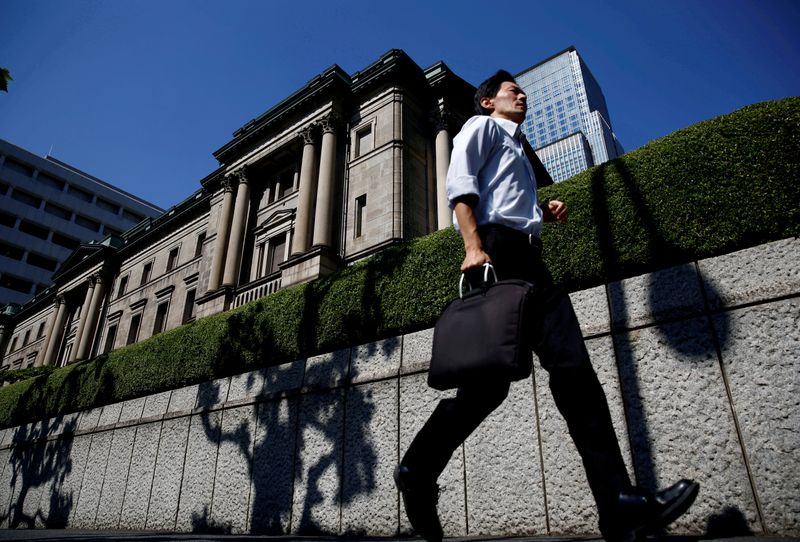
TOKYO (Reuters) – The coronavirus pandemic, if prolonged, could trigger a negative feedback loop in which a worsening economy threatens to destabilise Japan’s financial system, the Bank of Japan warned on Tuesday.
Japanese financial institutions have increased lending to middle-risk borrowers, or companies with higher credit risk, in search of higher yields amid years of ultra-low interest rates, the BOJ said in a semi-annual report on the financial system.
They have also increased high-risk overseas lending, such as those to energy firms hit by plunging oil prices, making their balance sheets vulnerable to global market volatility, it said.
Such exposure to various risks is among factors the BOJ must take into account in scrutinising Japan’s banking sector, particularly because some of the loans could turn sour as the pandemic hurts the economy, the report said.
“Japan’s financial system is under strong stress but remains sound as a whole, with financial institutions providing necessary funds to support economic activity,” the BOJ said.
“If the economy suffers a prolonged and deep slump, however, that could trigger a full-fledged, banking-sector correction,” it said.
That may lead to a situation where a worsening economy hits borrowers and increases bad loans for banks, sapping their ability to boost lending – thereby aggravating the economic downturn, the BOJ said.
The warning underscores the alarm BOJ policymakers have over the damage the pandemic could inflict on Japan’s commercial banks, many of whom are already suffering from narrowing margins from prolonged monetary easing.
Japanese commercial banks likely incurred losses on their securities holdings due to the recent market rout, as some of them had loaded up on risky financial products, the BOJ said.
Dollar funding strains could also hit Japanese financial institutions if dollar demand spikes, it said.
“Market strains have eased somewhat due to coordinated action by major central banks, including the BOJ, such as an expansion of dollar-funding operations,” the report said.
“But the market outlook is highly uncertain, so we need to be vigilant to how the coronavirus pandemic and global economic developments affect markets,” it said.
Under a stimulus package aimed at combating the pandemic, the government has urged commercial banks to offer zero-rate loans to cash-starved small companies hit by slumping sales.
Japan’s government last week expanded a state of emergency to include the entire country and pledged to offer cash payouts for all citizens to stem the outbreak and cushion the economic downturn. As of Tuesday, Japan saw 11,154 infections and 263 deaths.
The BOJ eased monetary policy last month by pledging to boost risky asset buying and creating a new loan programme to assist funding of small firms, joining other central banks in combating the fallout from the pandemic.
Sources have told Reuters the central bank is expected to take further steps to ease corporate funding strains at next week’s rate review, as companies continue to hoard cash to guard against a prolonged economic downturn.


